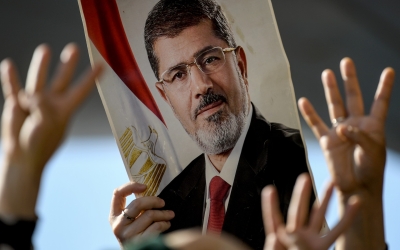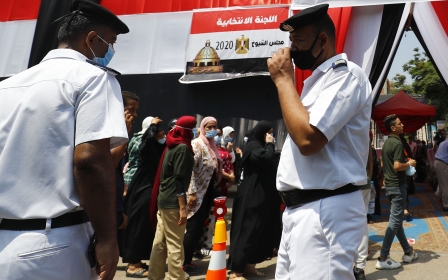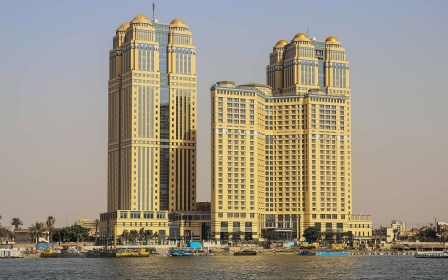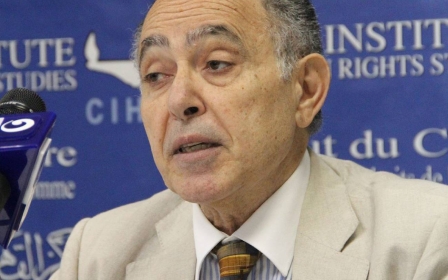Egypt arrests top Muslim Brotherhood leader after seven years in hiding: Ministry
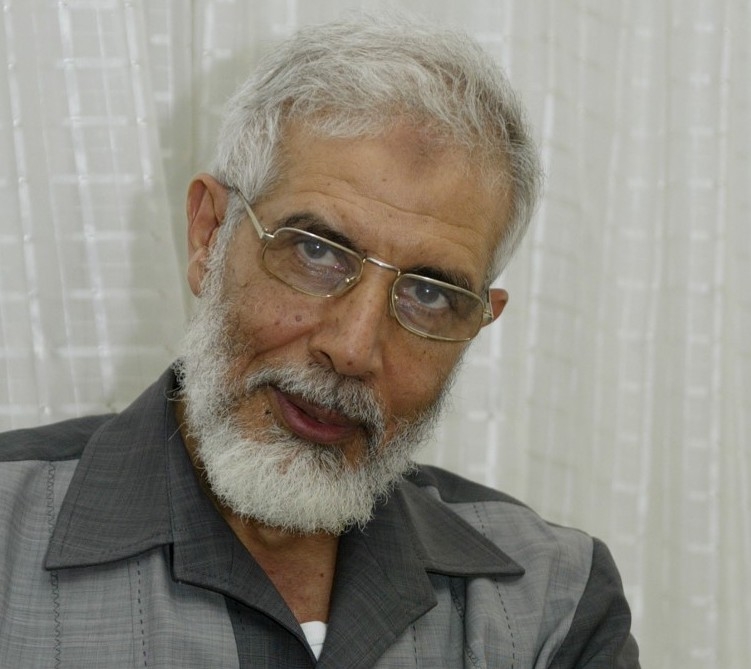
The acting leader of Egypt's largest opposition group, the Muslim Brotherhood, was arrested on Friday after seven years of speculation on his whereabouts, the Egyptian Ministry of Interior announced.
According to a ministry statement cited by local media, Mahmoud Ezzat was arrested at an apartment in the New Cairo neighbourhood east of the capital "after monitoring his movement for a while".
During their search of the apartment, security forces found "a number of computers, mobile phones with encrypted programs to secure his communications and management of the leaders and members of the organisation inside and outside the country," the statement read.
Ezzat is among several Brotherhood leaders and anti-government protesters who have been sentenced to the death penalty since 2013.
He is facing multiple death sentences issued in absentia, as well as life imprisonment on a range of charges, including espionage and leadership of an unlawful group. According to Egyptian law, those sentenced in absentia stand a retrial once arrested.
It remained unclear who would serve as acting Brotherhood leader following Ezzat's detention.
A statement by the group later on Friday held the government responsible for Ezzat's life, saying he suffers from a number of chronic illnesses.
"Subjecting him to torture in light of his chronic illnesses and advanced age will amount to deliberate and extrajudicial killing," a statement by the group read.
Crackdown on Brotherhood leaders
Several Brotherhood leaders have died in custody in recent years, including the late president Mohamed Morsi and former MP Essam El-Erian. Rights groups have said their deaths were most likely due to medical negligence and poor conditions in jails.
Ezzat, 76, had been serving as the acting general guide (chairman) of the Brotherhood since the arrest of the group's most senior leader, Mohamed Badie, following the military coup of 2013 led by then Minister of Defence Abdel Fattah el-Sisi.
Sisi, now the Egyptian president, ousted his democratically elected predecessor, Brotherhood member Mohamed Morsi, in July 2013. Since then, the former army general has led a crackdown on Brotherhood leaders and supporters, as well as secular opposition groups who criticise his rule.
Human Rights Watch has estimated that over 60,000 political prisoners are languishing in jails since Sisi became president in 2014, while many others have been living in self-imposed exile fearing reprisals at home.
Middle East Eye propose une couverture et une analyse indépendantes et incomparables du Moyen-Orient, de l’Afrique du Nord et d’autres régions du monde. Pour en savoir plus sur la reprise de ce contenu et les frais qui s’appliquent, veuillez remplir ce formulaire [en anglais]. Pour en savoir plus sur MEE, cliquez ici [en anglais].


